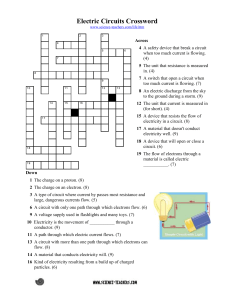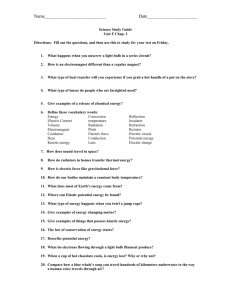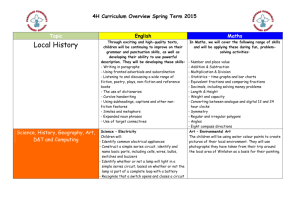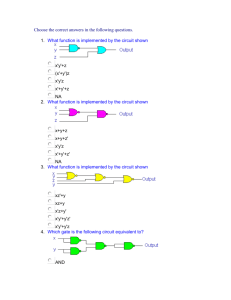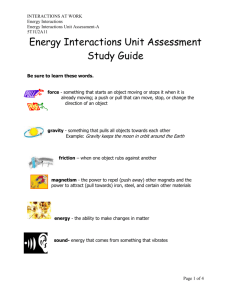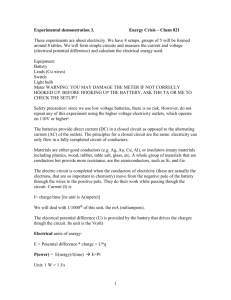Matter Study Guide
advertisement
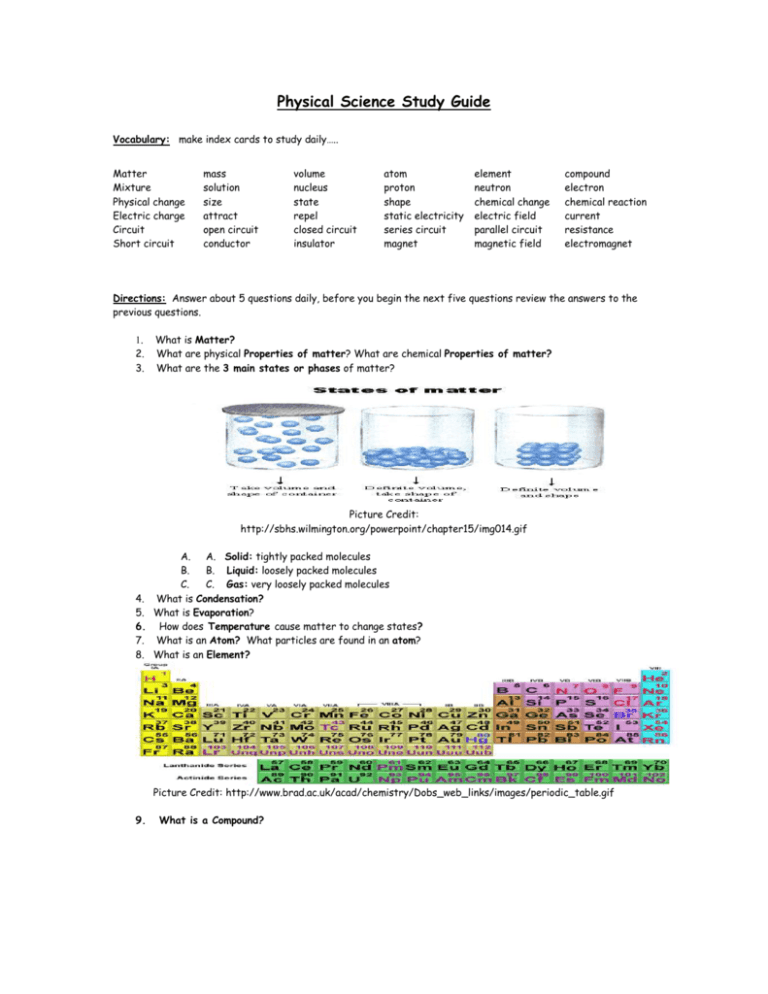
Physical Science Study Guide Vocabulary: make index cards to study daily….. Matter Mixture Physical change Electric charge Circuit Short circuit mass solution size attract open circuit conductor volume nucleus state repel closed circuit insulator atom proton shape static electricity series circuit magnet element neutron chemical change electric field parallel circuit magnetic field compound electron chemical reaction current resistance electromagnet Directions: Answer about 5 questions daily, before you begin the next five questions review the answers to the previous questions. 1. 2. 3. What is Matter? What are physical Properties of matter? What are chemical Properties of matter? What are the 3 main states or phases of matter? Picture Credit: http://sbhs.wilmington.org/powerpoint/chapter15/img014.gif 4. 5. 6. 7. 8. A. A. Solid: tightly packed molecules B. B. Liquid: loosely packed molecules C. C. Gas: very loosely packed molecules What is Condensation? What is Evaporation? How does Temperature cause matter to change states? What is an Atom? What particles are found in an atom? What is an Element? Picture Credit: http://www.brad.ac.uk/acad/chemistry/Dobs_web_links/images/periodic_table.gif 9. What is a Compound? Picture Credit: http://www.princeton.edu/~chm112/project/water%20molecule.gif 10. -11. 12. 13. There are 2 main ways substances can be mixed together: A. What is a Mixture? B. What is a Solution? What is Mass? What is volume? Picture Credit: http://www.sunblock99.org.uk/sb99/pictures/general/atom.gif 14. What does the atomic number of an element mean? Picture Credit: http://education.jlab.org/glossary/atomicnumber.gif 15. Matter can undergo two types of changes. What is a physical change? What are indicators of a physical change? What is a chemical change? What are indicators of a chemical change? 16. 17. 18. 19. 20. How does the electric charge of an object affect its behavior? How can an object become charged? When will objects attract? When will objects repel? What is static electricity? What is current electricity? 21. What is a circuit? How does a closed circuit allow electric current to flow? 22. What is a series circuit? What happens to the flow of electricity in a series circuit when one object is removed? 23. What is a parallel circuit? What happens to the flow of electricity in a parallel circuit when one object is removed? 24. What materials make good conductors? How are conductors important to circuits? 25. What materials make good insulators? How are insulators important to circuits? 26. What is an electromagnet? How can you control the power of an electromagnet? Evidence of completion of this study guide needs to be provided on the day of the test. Physical Science Unit Test date has not been established. It will likely be the first week in February.


